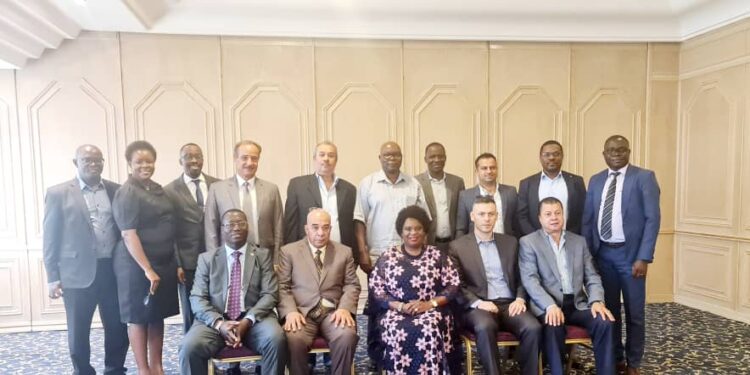The Kyeyo Association Uganda, a registered non-profit organization representing migrant workers from Uganda, has vehemently opposed the renewal of the bilateral labor migration agreement between Uganda and the Hashemite Kingdom of Jordan.
This renewed debate has sparked concerns over the well-being of Ugandan migrant workers and their rights in Jordan.
It is important to note that in August 2016, a Ugandan delegation, led by then Minister of Gender, Labor, and Social Development, Hon. Janet Mukwaya, signed a labor migration agreement with Saudi Arabia.
This agreement facilitated the employment of Ugandans in various capacities in Jordan, including domestic workers, drivers, cleaners, security guards, and more.
However, the years that followed were marred by reports of terrible mistreatment of Ugandan workers in Jordan.
These abuses ranged from delayed or unpaid salaries, denial of basic necessities like food, human trafficking, and various forms of abuse, including physical and sexual assaults.
The dire conditions faced by Ugandans working in Jordan led to Uganda suspending the labor agreement with Jordan in 2019.
Fast forward to August 22, 2023, a delegation from the Ministry of Gender, Labor, and Social Development, led by Hon. Minister Betty Amongi, convened with Jordanian officials to discuss the possibility of renewing the labor migration agreement.
Kyeyo Association Uganda, through its Chairperson Olooka Keneth, articulated several reasons in a document on August 28th, 2023 for rejecting the renewal of the agreement.
First, they emphasized the absence of worker representation during the negotiations. The lack of involvement from organizations like Kyeyo Association Uganda, which directly represents Ugandan migrant workers, raised concerns about the representation of workers’ rights and welfare.
Another significant point of contention was the absence of stakeholder engagement meetings. Key labor migration stakeholders, including Kyeyo Association Uganda and the Migrant Labor Trainers Association, were not consulted during the decision-making process. This oversight could result in crucial insights being overlooked.
Furthermore, safety concerns for Ugandan migrant workers in Jordan remained unresolved. Cases of mistreatment and a lack of mechanisms for recourse and redress highlighted the risks faced by Ugandan workers without diplomatic representation in Jordan.
Moreover, some bilateral labor migration agreements, like the one with the United Arab Emirates, remained unoperationalized, raising questions about the rush to open new agreements without resolving existing issues.
Kyeyo Association Uganda also suggested expanding labor markets beyond the Middle East, aiming for areas with better labor laws and higher wages, such as Europe and the USA, to improve migrant workers’ conditions.
Finally, the absence of a systematic framework for monitoring Ugandan migrant workers in Jordan was a significant concern. Without proper monitoring, ensuring the well-being of these workers would be reactive rather than proactive.
The umbrella body for Ugandan workers abroad contended that the debate over renewing the labor migration agreement between Uganda and Jordan hinges on the need to prioritize the rights and welfare of Ugandan migrant workers.
As the discussions continue, stakeholders must address the concerns raised by Kyeyo Association Uganda to ensure a fair and safe environment for Ugandans working abroad.
Do you have a story in your community or an opinion to share with us: Email us at editorial@watchdoguganda.com













